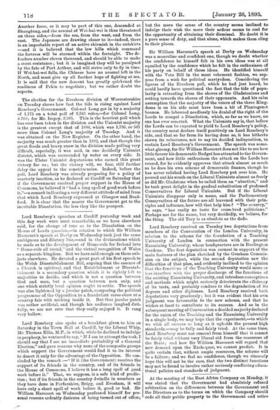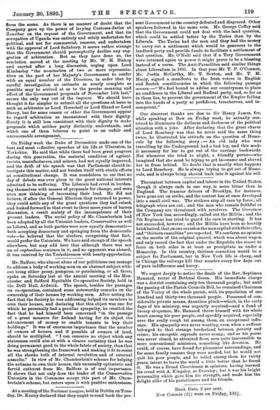At the meeting of the East Africa Company on Monday,
it was stated that the Government had absolutely refused arbitration on the differences between the Government and the Directors as to the terms on which the Company should cede all their public property to the Government and retire
from the scene. As there is no manner of doubt that the Company gave up the power of levying Customs-daties at Zanzibar on the request of the Government, and that its occupation of Uganda was entirely and solely undertaken for political, and not for commercial, reasons, and undertaken with the approval of Lord Salisbury, it seems rather strange that the Government should peremptorily decline any sug- gestion of arbitration. Bnt as they have done so, the resolution moved at the meeting by Mr. W. H. Bishop and carried after a long discussion, urging upon Lord Kimberley "the nomination of two or more representa- tives on the part of her Majesty's Government to confer with an equal number of the Directors, in order that by careful investigation an estimate as nearly complete as possible may be arrived at as to the precise meaning and effect of the Government proposals of November 14th last," seems the only way out of the impasse. We should have thought it far simpler to submit all the questions at issue to such an arbitrator as Lord Herschell or Lord Shand or Lord Davey, but for some reason or other the Government appear to regard arbitration as inconsistent with their dignity. Surely it is still less consistent with their dignity to make proposals which neither party distinctly understands, and which one of them believes to point to an unfair and unreasonable arrangement.



















































 Previous page
Previous page